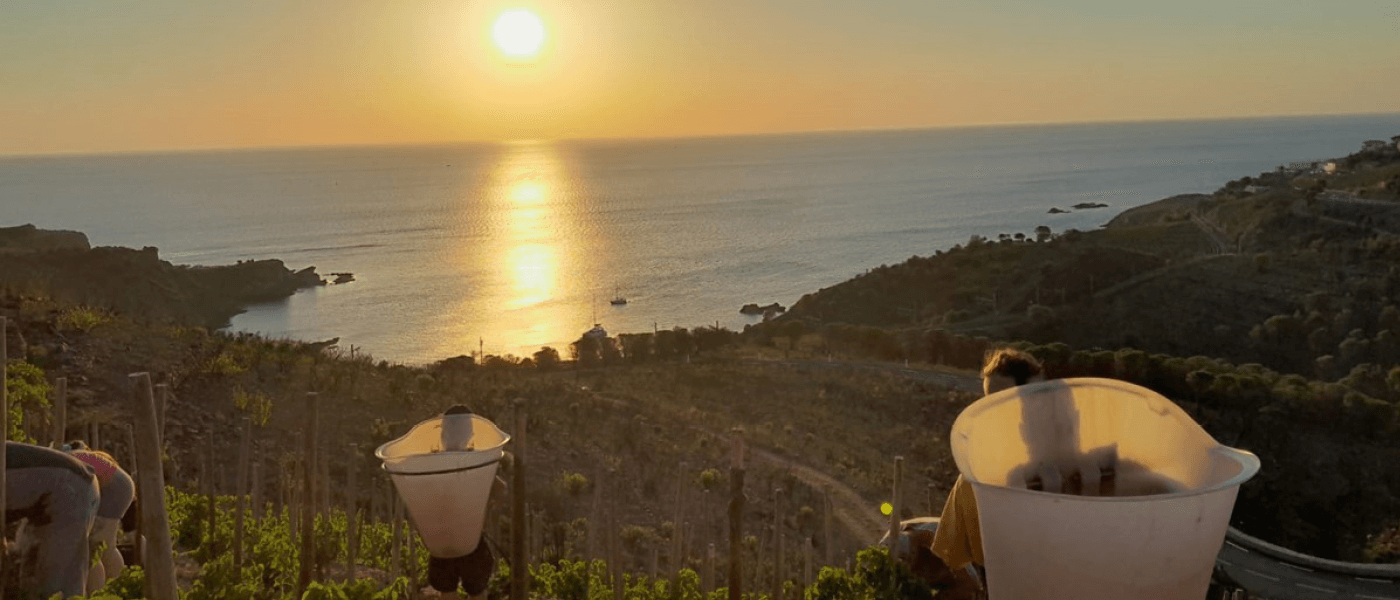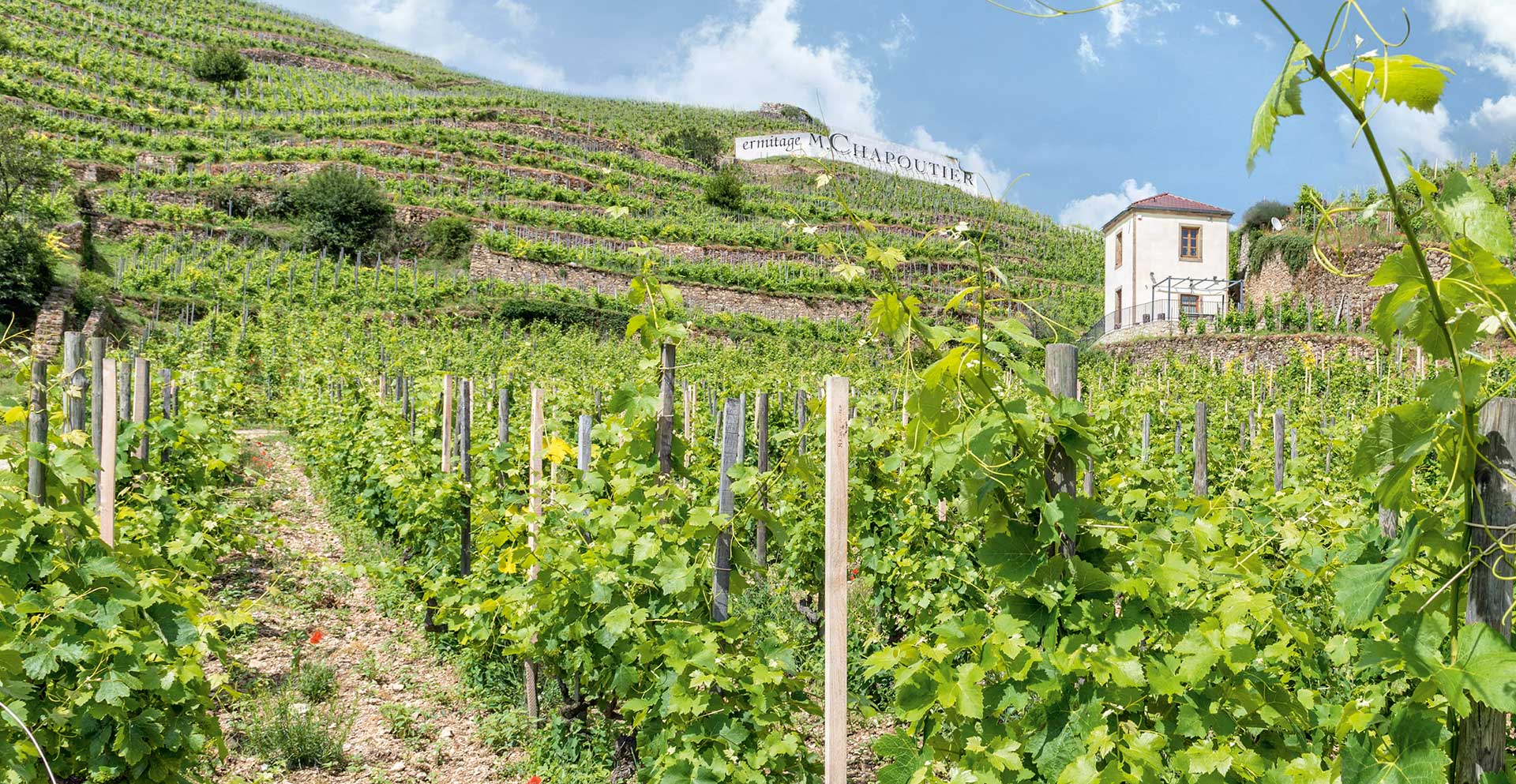Roussillon : a 2023 vintage characterised by adaption and harmony
In the vineyard
16 January 2024

Early spring in Pyrénées-Orientales was unusually dry, to the extent that bud-burst came a fortnight later than in 2022.
While dry springs have become a regular occurrence, the near absence of replenishment of winter water reserves is unusual (50mm in the last quarter of 2022). And the water deficit persisted throughout the season and continues today. 2023 looks to be the driest year in Roussillon, ahead of 2022 and 2016, with 240mm accumalated at the end of August.
As a result, throughout the season we adjust our work in the vineyard to limit the evapotranspiration of the plant (limited topping and trimming). Combined with biodynamic practices (biodynamic compost, forest litter), this also helps to preserve soil moisture.
Although the drought in the summer of 2023 persisted in the Latour de France area, it was punctuated by thunderstorms in July and August, which gave the grapes the chance to ripen slowly to achieve optimum sugar concentration. Similarly to 2022, we had very few windy spells (with the tramontane wind), which is rare in the area but limits hydric stress on the vines. The occasional summer thunderstorms contributed to a uniform veraison and healthy grape development, resulting in a better solid/liquid ratio.
The generally dry summer limited the pressure of fungal diseases and ensured that the grapes were exceptionally healthy, drastically reducing the need for plant protection treatments.
The hot weather in August brought the harvest dates forward, and we had to rethink our harvesting schedule in order to pick the parcels as precisely as possible to preserve the desired balance and avoid excessive sun exposure. The plots in Lesquerde sometimes have to be picked before those in Latour de France.
The higher altitudes where our vines are located contribute to more temperate nights, which keeps the aromatic freshness of the grapes. And surprisingly, despite the summer heatwave, the preservation of acidity in this vintage means that the wines are fresher and more harmonious.
All these adaptations to cope with a dry season and periods of heatwave have conspired to produce a 2023 vintage with silky wines of great aromatic complexity.
The Banyuls/Collioure area did not benefit from summer storms like Latour de France, but enjoyed the seaside humidity of the area, which even led to a few tropical days in August when daytime and night-time temperatures had no thermal amplitude. But sea spray helped to produce a fine vintage, maintaining a fine balance in our local grape varieties such as Grenache, which suit this climate so well, producing wines with a solar feel, while retaining their freshness.


